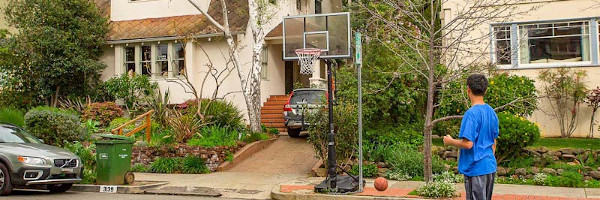Smart Neighborhoods
| Smart Neighborhoods | |
|---|---|

| |
 Smart Neighborhoods Oakland | |
| Team Organizations | Tech Hire Hack the Hood Glover Center Oakland Reach Oakland Housing Authority Eden Housing CCH Oakland Unified School District Civicorps Unitek College Merritt College |
| Team Leaders | Seth Hubbert |
| Participating Municipalities | City of Oakland CA |
| Status | Launched |
| Document | None |
Description
Full incorporation of digital technology into all aspects of city life – creation of Smart Cities – is fast becoming a best practice for urban reality. However, a large percentage of low-income residents in Oakland (and everywhere) remain digitally disconnected. Therefore, Digital Inclusion must be central to Smart City Initiatives because Smart Cities require residents to be digitally connected and empowered.
Challenges
- 123,000 Oakland residents do not have high-speed broadband Internet at home (30%).
- 88,000 Oakland residents do not have access to computers at home (21.4).
Solutions
Tech for All is a solution that supports residents with refurbished computers, digital skills training, affordable Internet signup and tech support.
Major Requirements
Tech Exchange, a Bay Area nonprofit, has developed the Smart Neighborhoods concept with the City of Oakland, Oakland Parks and Recreation, Oakland Housing Authority, Oakland Unified School District, Oakland Public Library, and East Bay Broadband Consortium.
A Tech Hub has been launched in Oakland’s San Antonio neighborhood that supports families with training, refurbished computers, tech support, and affordable Internet signup.
The Tech Hub is complimented by tech trainings and workshops held at affordable housing sites, schools, and community organization.
Performance Targets
| Key Performance Indicators (KPIs) | Measurement Methods |
|---|---|
|
|
Standards, Replicability, Scalability, and Sustainability
A core element of the project is the refurbishing of computers for community benefit. Urban areas throughout the world have companies that are cycling through technology and have retired assets that can be refurbished for disconnected community members. Outlier technology received through the program (switches, docking stations, etc.) can be sold to provide revenue to sustain the program.
Also, an element of the program is the workforce development, where youth from underserved neighborhoods receive internships to learn hardware skills and client service to provide tech support. As the program grows, interns are hired as staff as technicians.
Cybersecurity and Privacy
Training community members to stay safe online is a core value. Merrit College has a Cybersecurity program; students hold club meetings at the Tech Hub and provide community workshops on safe browsing practices.
Impacts
- Youth will have needed technology at home to succeed in school.
- Adults will have the technology resources available for accessing financial, healthcare, education, employment, and public services.
- Seniors will have capability of accessing social services online, staying connected with friends and family, and maintain awareness of current issues and events.
- The refurbishment of computers has large environmental consequences. For every dollar invested in the project, there is $1.33 environmental benefit.
Demonstration/Deployment
Tech Exchange has provided digital inclusion services for 24 years to the Oakland community. In February 2019 the first Tech Hub was launched, providing a community center for residents to receive support with computers, training, Internet, and tech support. The next stage will be to animate the Tech Hub with additional workshop and training opportunities and student tech clubs. Also, volunteers will be organized to provide outreach to the neighborhood to ensure digitally disconnected residents receive Tech for All services.